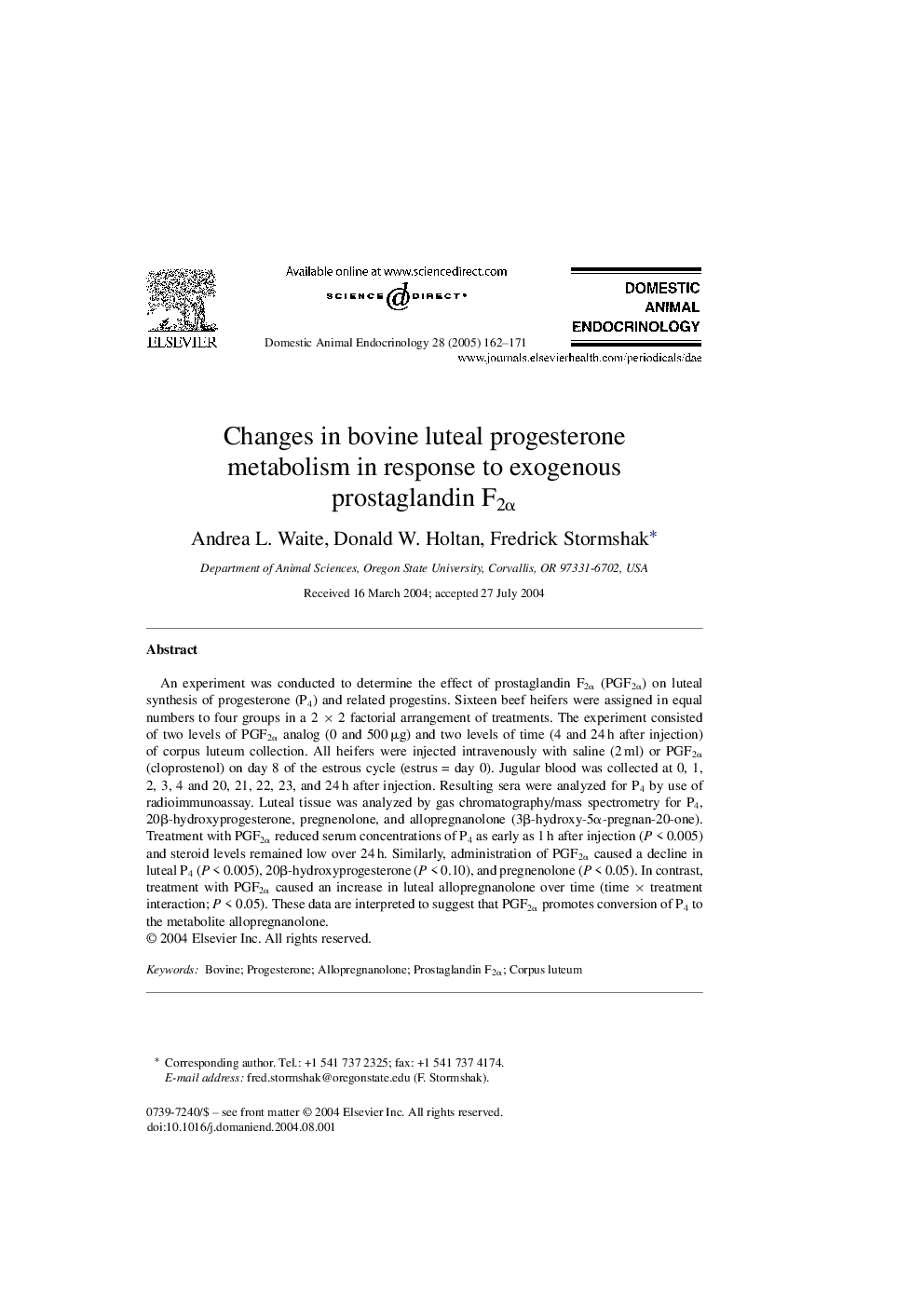| Article ID | Journal | Published Year | Pages | File Type |
|---|---|---|---|---|
| 8967262 | Domestic Animal Endocrinology | 2005 | 10 Pages |
Abstract
An experiment was conducted to determine the effect of prostaglandin F2α (PGF2α) on luteal synthesis of progesterone (P4) and related progestins. Sixteen beef heifers were assigned in equal numbers to four groups in a 2 à 2 factorial arrangement of treatments. The experiment consisted of two levels of PGF2α analog (0 and 500 μg) and two levels of time (4 and 24 h after injection) of corpus luteum collection. All heifers were injected intravenously with saline (2 ml) or PGF2α (cloprostenol) on day 8 of the estrous cycle (estrus = day 0). Jugular blood was collected at 0, 1, 2, 3, 4 and 20, 21, 22, 23, and 24 h after injection. Resulting sera were analyzed for P4 by use of radioimmunoassay. Luteal tissue was analyzed by gas chromatography/mass spectrometry for P4, 20β-hydroxyprogesterone, pregnenolone, and allopregnanolone (3β-hydroxy-5α-pregnan-20-one). Treatment with PGF2α reduced serum concentrations of P4 as early as 1 h after injection (P < 0.005) and steroid levels remained low over 24 h. Similarly, administration of PGF2α caused a decline in luteal P4 (P < 0.005), 20β-hydroxyprogesterone (P < 0.10), and pregnenolone (P < 0.05). In contrast, treatment with PGF2α caused an increase in luteal allopregnanolone over time (time à treatment interaction; P < 0.05). These data are interpreted to suggest that PGF2α promotes conversion of P4 to the metabolite allopregnanolone.
Related Topics
Life Sciences
Agricultural and Biological Sciences
Animal Science and Zoology
Authors
Andrea L. Waite, Donald W. Holtan, Fredrick Stormshak,
